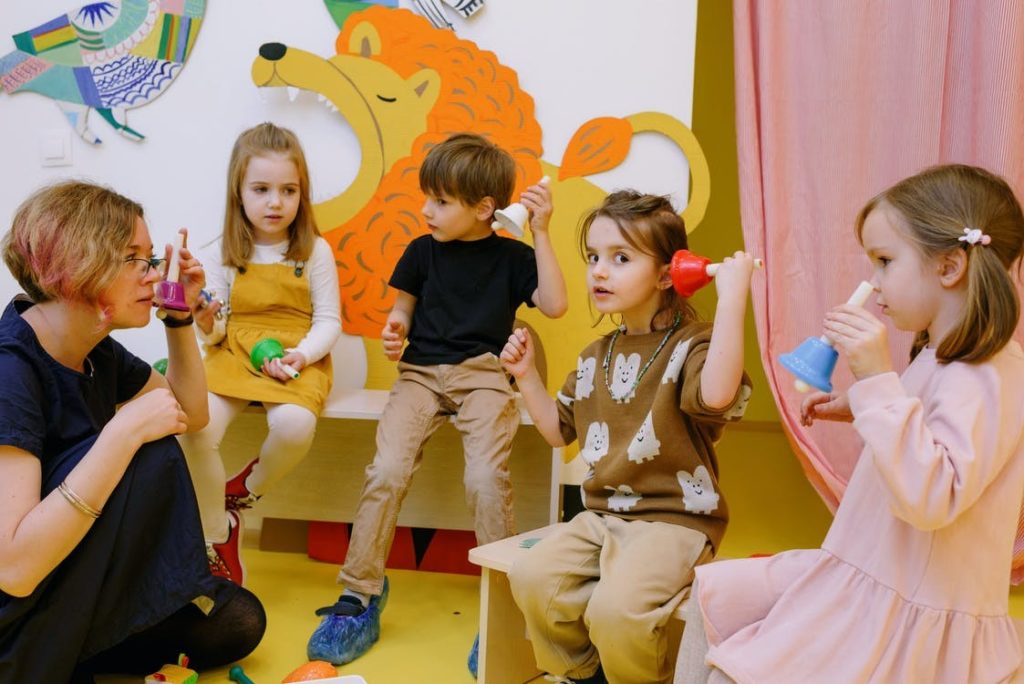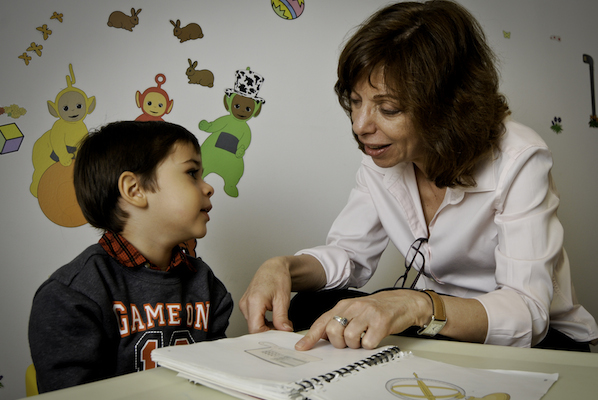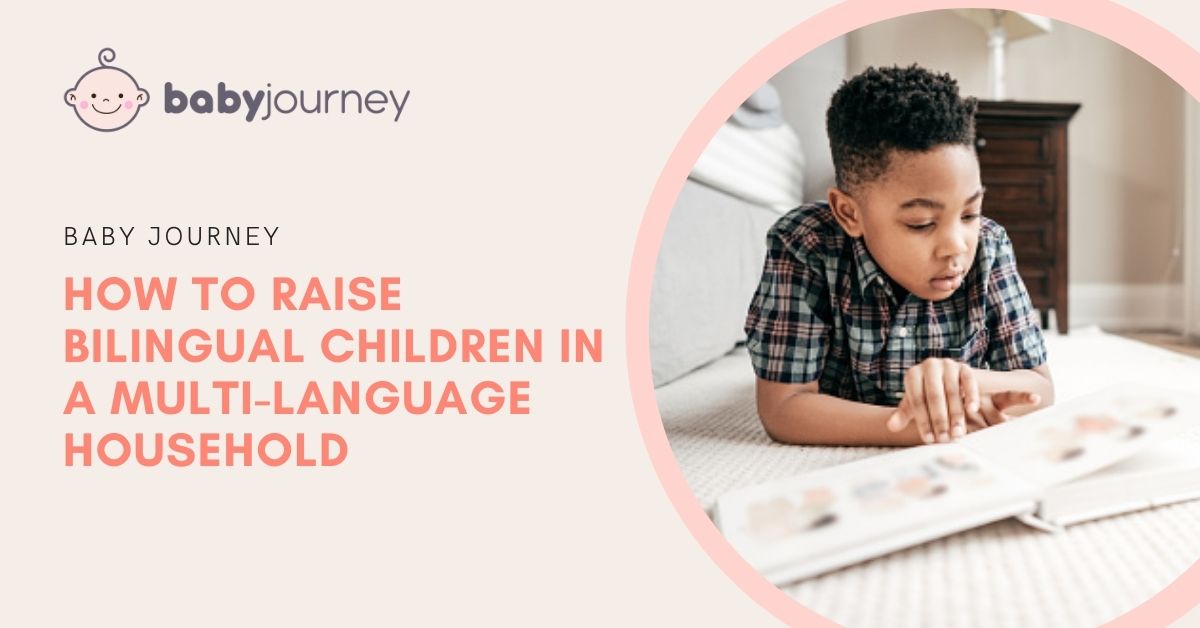[ad_1]
Have you immigrated to a new country and wondered how to raise your children in a multilingual household? Don’t fret; this article will give you all the help you need to raise bilingual children or multilingual kids.

Studies show that 22% of children in the U.S speak more than one language at home. And this is expected to keep increasing as the number of people immigrating to the US is large. And this increases the rate of inter-racial marriages.
It might be challenging for a child to understand more than one language at once, but there are multiple benefits to learning several languages early. Some of the benefits children raised in a multilingual household include enhanced focus, self-control, and improved memory. Let’s explore how parents should raise children in a multilingual home.
How to Raise Bilingual Children in a Multilingual Household
Children are amazing, and as they grow, they can understand their surroundings clearly. Some people believe that raising children in a family that speaks more than one language can confuse the child. At the same time, some believe that children are well placed to learn and understand multiple languages when they are young.
Children can understand several languages better than adults. However, this can only happen if they live in a community where people engage them in multiple languages, or that their parents practice bilingual parenting.
Parents should ensure their child has a better grasp of the language as they grow. This means that the languages you introduce your child to as they grow should be natural to you; this will enable you to help them develop fluency and evolve their bilingual language development.
The names you give your children should also sometimes reflect their heritage. For instance, if you are an Italian and are looking for a boy name inspired from Italy, the best place to check is Italian parenting websites.
Parents should know some of these things as they learn how to raise a bilingual child in a multi-language household.
Your child will not learn to speak a second or third language simply because they heard you speaking.
Just because you speak a different language in the house doesn’t mean that your child will understand and start talking. You will need to engage your child in the said language and then help them practice speaking if you wish to raise bilingual children. You can opt to enroll them on a language app to help fast track their learning of a second or third language.
Please don’t assume that once they learn, they’ll never forget
If you don’t make a habit of speaking to them frequently and help them practice, they will eventually forget. So be sure to take time every day to practice with them. Alternatively, you can have neighbors or other kids speaking the same language practice with your child. That’s why it’s important to integrate into a community that speaks the said language when raising bilingual children.
Your child may reject the language as they grow older.
As a parent raising bilingual children, you might assume that as your child grows older, they will be proud to speak more than the primary language. However, this can’t be further from the truth, as some children will often choose to drop their native language to fit in with the other kids. When you notice this, don’t be strict with your kids; make it a point to speak your native language at home and what they want when out at school or with their friends.
If both parents speak different languages, they should be comfortable with the language the child uses
Raising multilingual children can be challenging, especially if both parents are from different cultures. Your concern should be sticking to what your child is comfortable with. Your child may use one language with the dad and another with the mum. This will help them practice all languages and make switching from one language to another easy.
Your child may be confused by learning to speak more than one language
It is said that children raised in a multilingual household learn how to speak much later than those in a single language household. This is due to the different languages involved. And even if they learn to speak, you’ll find that they mix words from different languages in a sentence, so parents should be patient. Parenting books can help you with the best ways to teach or guide your child along the way.
Please don’t assume that your child will learn your second language once they visit your native country.
This isn’t an easy matter, irrespective of the length of the visit. Yes, they may learn a few words, but they will never speak fluently. However, you can help them develop their speaking skills, enhancing their fluency after their visit.
If you want your children to develop multi-language listening and speaking skills, you must put in the effort. This can be by helping them practice by:
- Enrolling them on a language app,
- Integrating into a community speaking the said language
- Enrolling in preschool
- Organizing playdates with other kids.
- Introducing a language calendar. For instance, Monday to Wednesday should be Spanish, French from Thursday to Saturday and Sunday is free. This can be dinnertime chats or bedtime stories.
4 Benefits of Speaking Multiple Languages in Children

Enhanced memory
Children who are fluent in two languages or can speak multiple languages have an improved memory. Apart from playing with Montessori toys for toddlers, speaking bilingually can enhance their memory as they need to store a lot of information and be ready to disperse it at will. This helps them in their studies and other life skills.
Enhanced concentration
A fully bilingual child has an enhanced level of concentration and focus, as they need to switch between languages at a moment’s notice. This helps them focus in class and tune out the noise.
Quick thinking
Their ability to switch from one language to another improves your child’s response, thus, enhancing brain development in bilingual kids.
Communication skills
Multilingual children are better at mastering the art of listening and understanding, making them excellent communicators. Therefore, children from multilingual households have no problem expressing themselves.
Final Thoughts
Introducing multiple languages to children at a young age is the best option as it ensures that they have plenty of time to practice. Furthermore, their brains are still developing, making it easy to grasp new languages. This article gives you tips on how to raise children in a multilingual household and the benefits your children gain from speaking multiple languages.
Do you raise your children in other languages as well? How did it go, and what did you think about making that decision? Share with us your thoughts in the comments!
[ad_2]
Original Source Link

 PARENTING TIPS
PARENTING TIPS PREGNANCY
PREGNANCY BABY CARE
BABY CARE TODDLERS
TODDLERS TEENS
TEENS HEALTH CARE
HEALTH CARE ACTIVITIES & CRAFTS
ACTIVITIES & CRAFTS


